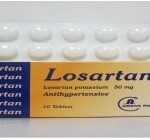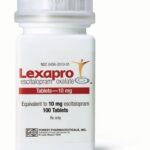I Accidentally Took Double Dose Of Atorvastatin

Atorvastatin is used together with diet, weight loss, and exercise to reduce the risk of heart attack and stroke and to decrease the chance that heart surgery will be needed in people who have heart disease or who are at risk of developing heart disease. Atorvastatin is also used to decrease the amount of fatty substances such as low-density lipoprotein (LDL) cholesterol (‘bad cholesterol’) and triglycerides in the blood and to increase the amount of high-density lipoprotein (HDL) cholesterol (‘good cholesterol’) in the blood.
Atorvastatin may also be used to decrease the amount of cholesterol and other fatty substances in the blood in children and teenagers 10 to 17 years of age who have familial heterozygous hypercholesterolemia (an inherited condition in which cholesterol cannot be removed from the body normally). Atorvastatin is in a class of medications called HMG-CoA reductase inhibitors (statins). It works by slowing the production of cholesterol in the body to decrease the amount of cholesterol that may build up on the walls of the arteries and block blood flow to the heart, brain, and other parts of the body.
Accumulation of cholesterol and fats along the walls of your arteries (a process known as atherosclerosis) decreases blood flow and, therefore, the oxygen supply to your heart, brain, and other parts of your body. Lowering your blood level of cholesterol and fats with atorvastatin has been shown to prevent heart disease, angina (chest pain), strokes, and heart attacks.
How should atorvastatin be taken?
The recommended starting dose of atorvastatin for adults is 10 mg or 20 mg daily, preferably in the evening, with or without food. Your doctor will do blood tests to tell how well this dose is working for you and may gradually increase the dose to get the desired response. The maximum recommended dose for adults is 80 mg taken once daily.
For children 10 to 17 years of age who are taking this medication to treat inherited cholesterol disorders, the recommended dose ranges from 10 mg to 20 mg daily. Doses greater than 20 mg have not been studied.
Many things can affect the dose of medication that a person needs, such as body weight, other medical conditions, and other medications. If your doctor has recommended a dose different from the ones listed here, do not change the way that you are taking the medication without consulting your doctor.
For best results in lowering cholesterol, it is very important to closely follow the diet suggested by your doctor. It is also very important that atorvastatin be taken regularly and exactly as prescribed by your doctor.
What should I do if I forget a dose?
If you miss a dose of this medication, take it as soon as possible and continue with your regular schedule. If it is almost time for your next dose, skip the missed dose and continue with your regular dosing schedule. Do not take a double dose to make up for a missed one. If you are not sure what to do after missing a dose, contact your doctor or pharmacist for advice.
What should I do if I accidentally took double dose of atorvastatin?
Taking an extra dose of atorvastatin by accident is unlikely to harm you. However, it is possible to overdose on atorvastatin. Signs of an overdose on this drug include: Trouble breathing due to allergic reaction and passing out. Talk to your pharmacist or doctor if you’re worried or take more than 1 extra dose.
In case of overdose, call the poison control helpline at 1-800-222-1222. Information is also available online at https://www.poisonhelp.org/help. If the victim has collapsed, had a seizure, has trouble breathing, or can’t be awakened, immediately call emergency services at 911.
What are the side effects of atorvastatin?
Many medications can cause side effects. A side effect is an unwanted response to a medication when it is taken in normal doses. Side effects can be mild or severe, temporary or permanent.
The side effects listed below are not experienced by everyone who takes this medication. If you are concerned about side effects, discuss the risks and benefits of this medication with your doctor.
The following side effects have been reported by at least 1% of people taking this medication. Many of these side effects can be managed, and some may go away on their own over time.
Contact your doctor if you experience these side effects and they are severe or bothersome. Your pharmacist may be able to advise you on managing side effects.
- constipation
- diarrhea
- gas
- headache
- nausea
- rash
- sexual problems
- stomach pain
- trouble sleeping
- vomiting
Although most of the side effects listed below don’t happen very often, they could lead to serious problems if you do not seek medical attention.
Check with your doctor as soon as possible if any of the following side effects occur:
- confusion
- cough, shortness of breath, fever
- memory loss
- signs of depression (e.g., poor concentration, changes in weight, changes in sleep, decreased interest in activities, thoughts of suicide)
- symptoms of high blood sugar (e.g., frequent urination, increased thirst, excessive eating, unexplained weight loss, poor wound healing, infections, fruity breath odour)
- symptoms of liver damage (such as yellow skin or eyes, abdominal pain, dark urine, clay-coloured stools, loss of appetite, nausea and vomiting, or itching)
Stop taking the medication and seek immediate medical attention if any of the following occur:
- symptoms of muscle damage (unexplained muscle pain, tenderness or weakness, or brown or discoloured urine – especially if you also have a fever or a general feeling of being unwell)
- symptoms of a serious allergic reaction such as swelling of the face or throat, hives, or difficulty breathing
Some people may experience side effects other than those listed. Check with your doctor if you notice any symptom that worries you while you are taking this medication.
Are there any other precautions or warnings for this medication?
Before you begin using a medication, be sure to inform your doctor of any medical conditions or allergies you may have, any medications you are taking, whether you are pregnant or breast-feeding, and any other significant facts about your health. These factors may affect how you should use this medication.
Alcohol: People who drink large quantities of alcohol should be closely monitored by their doctor while they are taking this medication.
Cardiovascular: There is an increased risk of hemorrhagic stroke if atorvastatin is started within 6 months of having a stroke or transient ischemic attack (TIA). If you have a history of stroke or have had a recent stroke, discuss with your doctor how this medication may affect your medical condition, how your medical condition may affect the dosing and effectiveness of this medication, and whether any special monitoring is needed.
Diabetes: Atorvastatin may cause an increase in blood sugar levels and glucose tolerance may change. People with diabetes may find it necessary to monitor their blood sugar more frequently while using this medication.
If you have diabetes or are at risk for developing diabetes, discuss with your doctor how this medication may affect your medical condition, how your medical condition may affect the dosing and effectiveness of this medication, and whether any special monitoring is needed.
Diet: Atorvastatin is not intended to be used alone to reduce high cholesterol levels. It is important that a cholesterol-reducing diet along with appropriate exercise be attempted before taking any medication and continued while taking medication.
Grapefruit juice: Taking atorvastatin and consuming grapefruit juice may result in an increased amount of atorvastatin in the body, and lead to side effects. If you regularly drink grapefruit juice, talk to your doctor or pharmacist about whether you should change your diet.
Hypersensitivity reaction: A severe allergic reaction called hypersensitivity syndrome has been reported by some people using other medications in the same family as atorvastatin. Get immediate medical attention if you have symptoms of a severe allergic reaction, including fever, swollen glands, yellowing of the skin or eyes, or flu-like symptoms with skin rash or blistering.
Kidney function: If you have decreased kidney function or a history of kidney disease, you may be at an increased risk of developing muscle effects while taking atorvastatin. The lowest effective dose of atorvastatin should be used and your doctor should follow you closely. If you have kidney problems, discuss with your doctor how this medication may affect your medical condition, how your medical condition may affect the dosing and effectiveness of this medication, and whether any special monitoring is needed.
Liver function: Atorvastatin may reduce liver function and can cause liver failure, although this is rare. This medication should not be used by people with active liver disease or by people whose liver function tests are higher than normal. If you have liver problems, discuss with your doctor how this medication may affect your medical condition, how your medical condition may affect the dosing and effectiveness of this medication, and whether any special monitoring is needed. Your doctor may want to test your liver function regularly with blood tests while you are taking this medication.
If you experience symptoms of liver problems such as fatigue, feeling unwell, loss of appetite, nausea, yellowing of the skin or whites of the eyes, dark urine, pale stools, abdominal pain or swelling, and itchy skin, contact your doctor immediately.
Muscle effects: In rare cases, serious muscle pain, cramps, and weakness have been associated with the use of statin medications (i.e., cholesterol-lowering medications whose names end in “statin,” such as atorvastatin, fluvastatin, lovastatin, pravastatin, rosuvastatin, or simvastatin), especially at higher doses. Before taking this medication, tell your doctor or pharmacist if you:
- have kidney or liver problems
- are taking niacin or a fibrate medication (such as gemfibrozil, fenofibrate)
- have an underactive thyroid gland (hypothyroidism)
- regularly drink more than 3 alcoholic drinks per day
- have had any past problems with muscles (pain, tenderness) after taking a statin such as atorvastatin, fluvastatin, lovastatin, pravastatin, rosuvastatin, or simvastatin
- have a personal or family history of inherited muscle problems
- are over 65 years old
- have undergone surgery or suffered any traumatic injury
- are frail
- do excessive physical exercise
- have diabetes
- are taking medications that may increase the amount of atorvastatin in the body or are taking other medications that can cause muscle damage
Report any unexplained muscle pain, tenderness, weakness, or cramps, or any brown or discoloured urine to your doctor immediately, particularly if you are also experiencing malaise (a general feeling of being unwell) or fever.
Pregnancy: Cholesterol is necessary for the development of an unborn baby. Taking atorvastatin during pregnancy reduces the amount of cholesterol reaching the developing baby and may cause harm to the baby. Atorvastatin should not be taken by pregnant women. If you become pregnant while taking this medication, stop taking it immediately and contact your doctor.
Breast-feeding: It is not known if atorvastatin passes into breast milk. If you are breast-feeding and are taking this medication, it may affect your baby. Talk to your doctor about whether you should continue breast-feeding.
Children: There is limited experience with the use of this medication by children. Atorvastatin has only been studied for use by children aged 10 to 17 years who have inherited cholesterol disorders (also known as familial hypercholesterolemia).
Seniors: If you are over 70 years old, you may experience more side effects. Your doctor will monitor you closely while you are taking this medication.





